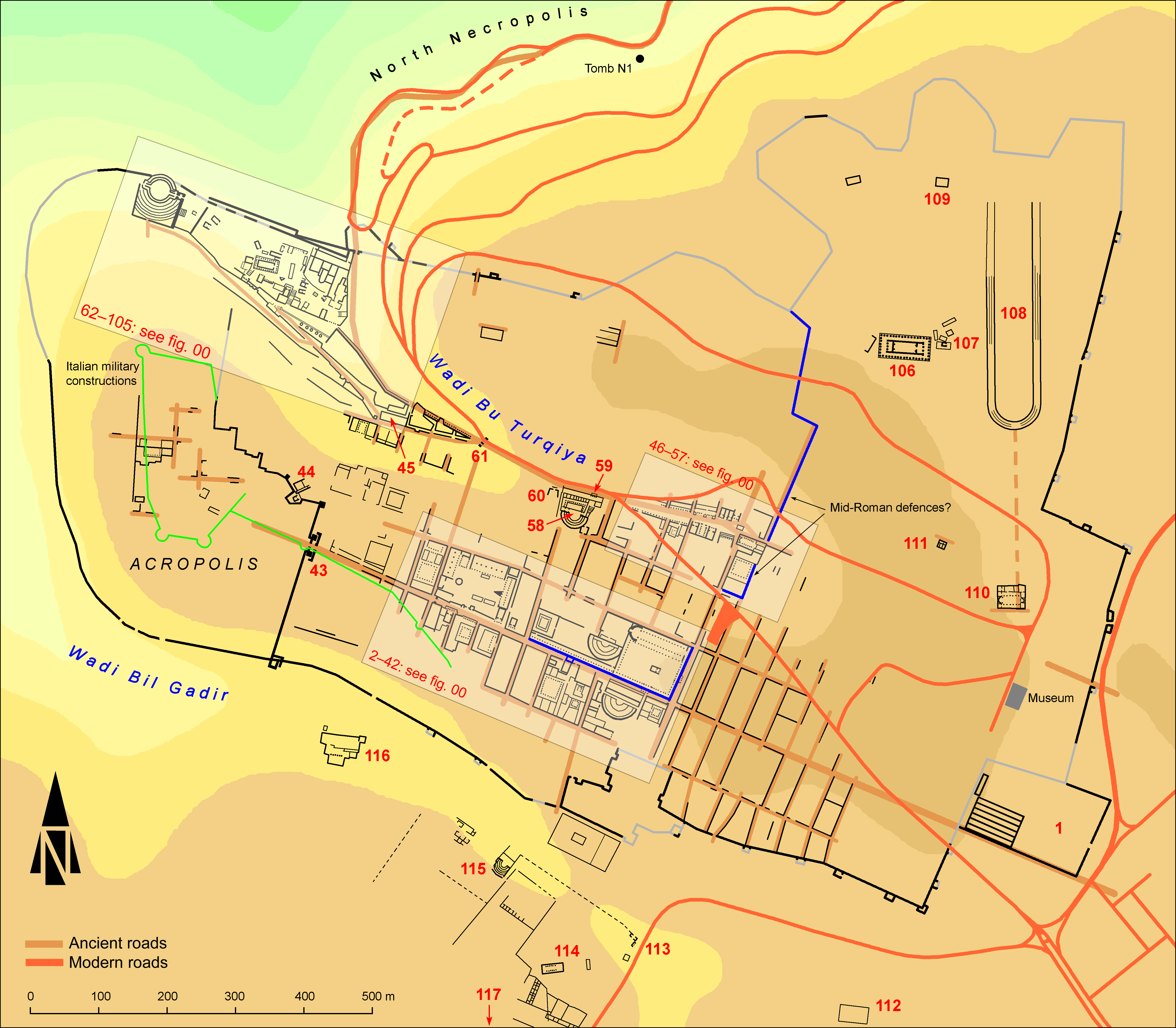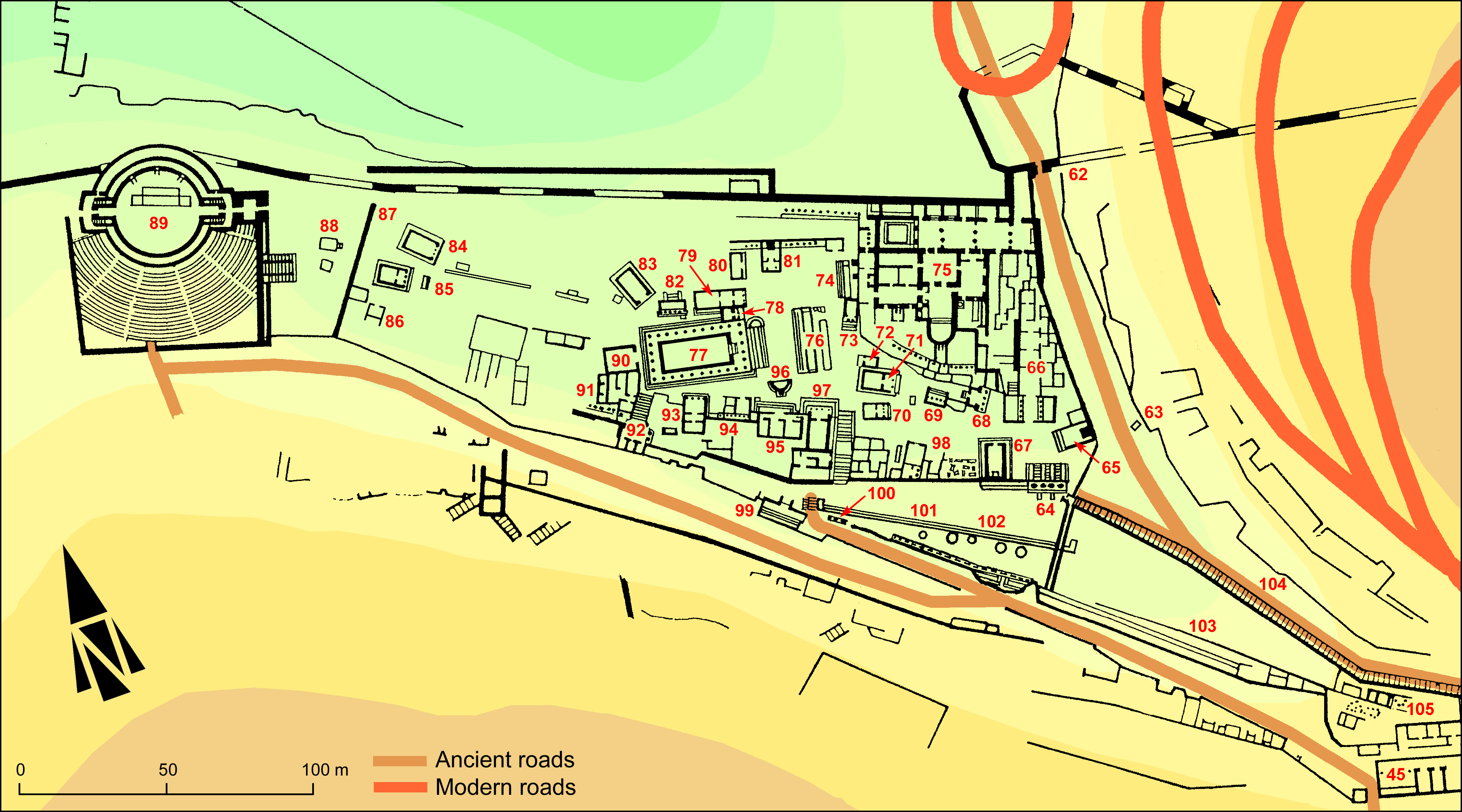EpiDoc XML:
IGCyr1029202
Trismegistos ID:
738541
Source description
Support: Limestone altar with two compartments (w: 0.555 × h: 0.105 × d: 0.35).
Layout: Inscribed on front face.
Letters: 0.01 to 0.017.
Date: End of sixth or beginning of fifth century BC (lettering).
Findspot: Found in 1929 or 1930 at Cyrene ➚: in the Sanctuary of Apollo, West of the Strategeion, in the so-called Agora of the Gods.
Place of origin: Findspot.
Last recorded location: Seen by D. Morelli in 1960 at findspot, in the Sanctuary of Apollo. Not found by IGCyr team.
Text constituted from: Transcription from previous editor.
Bibliography
Morelli in SECir, 219 (no image); Dobias-Lalou 2000, p. 13; IGCyr 102920 ➚. Cf. Parisi Presicce 2007.
Text
Apparatus
1: hεκάτα: Ἡκάτα SECir !
French translation
Hécate.
English translation
Hekate.
Italian translation
Ecate.
Commentary
Morelli gave neither image nor precision about the characters. He only expressed some surprise at the first letter being an eta.
On the one hand, if the lettering allowed to place this inscription at the end of the sixth or the beginning of the fifth century, eta would stand for [he] in a period when its new value of [e:] was not yet quite customary. On the other hand, most altars with compartments seem to belong rather to the Hellenistic period; eta would then be erroneous for epsilon. We choose nevertheless the former reading which seems more sensible.
Another queer point is the use of the nominative, for most other altars have the genitive, which mentions the god (or goddess) as owner of the altar. See however a possible instance at IGCyr1030002.
CC BY-NC-SA 4.0 Deed Attribution-NonCommercial-ShareAlike 4.0 International License.
All citation, reuse or distribution of this work must contain a link back to DOI: https://doi.org/10.60760/unibo/igcyrgvcyr2 and the filename (IGCyr000000 or GVCyr000), as well as the year of consultation.

